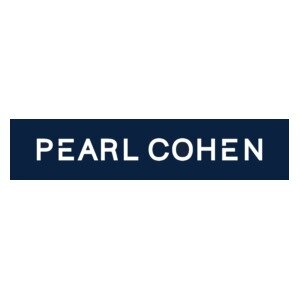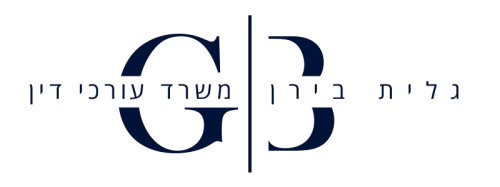Best Public-Private Partnerships (PPP) Lawyers in Israel
Share your needs with us, get contacted by law firms.
Free. Takes 2 min.
Or refine your search by selecting a city:
List of the best lawyers in Israel
About Public-Private Partnerships (PPP) Law in Israel
A Public-Private Partnership (PPP) is a collaborative arrangement between government entities and private sector companies to finance, construct, operate, or maintain public infrastructure and services. In Israel, PPPs have become a vital mechanism for delivering large-scale projects such as highways, public buildings, energy facilities, water desalination plants, and more. This model leverages the strengths and resources of both sectors, bringing innovation and efficiency from the private sector while maintaining public oversight and accountability. The legal framework for PPPs in Israel is shaped by a series of specific regulations, government policies, and relevant guidelines designed to ensure transparency, competition, and the achievement of public interests.
Why You May Need a Lawyer
Getting involved in a PPP project involves a complex intersection of commercial, regulatory, and governmental considerations. Legal advice is essential in situations such as:
- Responding to government tenders for infrastructure projects under the PPP model.
- Negotiating terms with public authorities and private consortium partners.
- Ensuring compliance with Israeli laws and sector-specific regulations.
- Addressing disputes, delays, or breaches of contract.
- Structuring finance, risk allocation, and performance guarantees.
- Managing land use, permitting, environmental, and intellectual property issues.
A lawyer experienced in PPP matters can help you navigate these processes, reduce risks, and protect your interests.
Local Laws Overview
The legal landscape for PPPs in Israel is shaped by several key statutes, governmental policies, and sector-specific regulations. Some of the principal aspects include:
- The Tender Law, 1992 - Sets out procedures for public tenders, ensuring fair competition and transparency in the awarding of PPP contracts.
- Specific government resolutions that promote the PPP model and establish oversight bodies.
- Guidelines by the Accountant General in the Ministry of Finance - Responsible for formulating policy, standard contracts, and monitoring PPP projects.
- Sectoral regulations, such as those by the Ministry of Transport or Energy, relevant to the specific nature of infrastructure projects.
- Requirements for environmental permits, land expropriation, zoning, financing, and risk-sharing arrangements.
These laws are subject to change and can vary based on the sector, type of project, and governmental priorities.
Frequently Asked Questions
What sectors in Israel commonly use the PPP model?
PPP projects in Israel are most common in transportation (roads and railways), water (desalination and wastewater plants), energy, health, and education infrastructure.
Who initiates a PPP project in Israel?
Typically, government ministries or public authorities initiate PPP projects by issuing public tenders for private companies to compete for the opportunity to participate.
How is the private partner chosen in a PPP?
Private sector candidates are chosen through competitive public tenders held under the Tender Law, which ensures fairness, transparency, and the selection of the most qualified bidders.
What are common types of PPP models used in Israel?
Build-Operate-Transfer (BOT), Design-Build-Finance-Operate (DBFO), and Build-Own-Operate (BOO) are some of the most commonly used models, each with different allocations of responsibilities and risks.
How long can a typical PPP agreement last?
PPP agreements in Israel usually last between 15 to 35 years, but the exact duration depends on the project and sector. At the end of the contract, assets typically revert to the state.
What are the main risks for the private sector in PPPs?
Risks can include construction delays, financing challenges, demand or usage risks, regulatory changes, and issues with land acquisition or permitting.
Can foreign companies participate in Israeli PPP tenders?
Yes, foreign companies can participate, often in partnership with local firms. They must comply with Israeli laws, tender procedures, and any specific requirements in the tender documents.
How are disputes in PPP projects resolved?
Disputes are typically resolved through contractual mechanisms such as negotiation or mediation, sometimes followed by arbitration or litigation in Israeli courts if necessary.
What is the role of the Ministry of Finance in PPP projects?
The Ministry of Finance, through the Accountant General's office, coordinates and supervises PPP policy, reviews project proposals, monitors execution, and ensures alignment with government objectives.
What are the environmental considerations in Israeli PPPs?
PPP projects must comply with environmental regulations, including impact assessments and permits. Early legal advice can help avoid costly delays related to environmental requirements.
Additional Resources
For more information on PPPs in Israel, consider consulting the following resources:
- Accountant General in the Ministry of Finance - Oversees government PPP policy and maintains official guidelines.
- Ministry of Transport or Ministry of Energy - For sector-specific guidance and regulations.
- Israel Land Authority - For land use and zoning matters relevant to public infrastructure.
- Chamber of Commerce - May provide networking and guidance for private sector partners.
- Legal and consulting firms specializing in infrastructure and public law.
Next Steps
If you are considering participating in a PPP project in Israel, taking the following steps can help protect your interests and optimize your involvement:
- Identify your goals and what you hope to achieve in the PPP arrangement.
- Review relevant Israeli laws, regulations, and tender documentation.
- Consult with a lawyer experienced in public law, infrastructure, or PPP projects to assess your specific situation and risks.
- Prepare any required documents, evidence of financial capacity, and compliance measures early.
- Engage with relevant government bodies and potential project partners to initiate collaboration and clarify expectations.
Legal guidance at an early stage can make a significant difference in successfully navigating the complexities of Israeli PPP law and procedures. If in doubt, schedule a consultation with a qualified legal advisor to review your specific needs and next steps.
Lawzana helps you find the best lawyers and law firms in Israel through a curated and pre-screened list of qualified legal professionals. Our platform offers rankings and detailed profiles of attorneys and law firms, allowing you to compare based on practice areas, including Public-Private Partnerships (PPP), experience, and client feedback.
Each profile includes a description of the firm's areas of practice, client reviews, team members and partners, year of establishment, spoken languages, office locations, contact information, social media presence, and any published articles or resources. Most firms on our platform speak English and are experienced in both local and international legal matters.
Get a quote from top-rated law firms in Israel — quickly, securely, and without unnecessary hassle.
Disclaimer:
The information provided on this page is for general informational purposes only and does not constitute legal advice. While we strive to ensure the accuracy and relevance of the content, legal information may change over time, and interpretations of the law can vary. You should always consult with a qualified legal professional for advice specific to your situation.
We disclaim all liability for actions taken or not taken based on the content of this page. If you believe any information is incorrect or outdated, please contact us, and we will review and update it where appropriate.
Browse public-private partnerships (ppp) law firms by city in Israel
Refine your search by selecting a city.

















